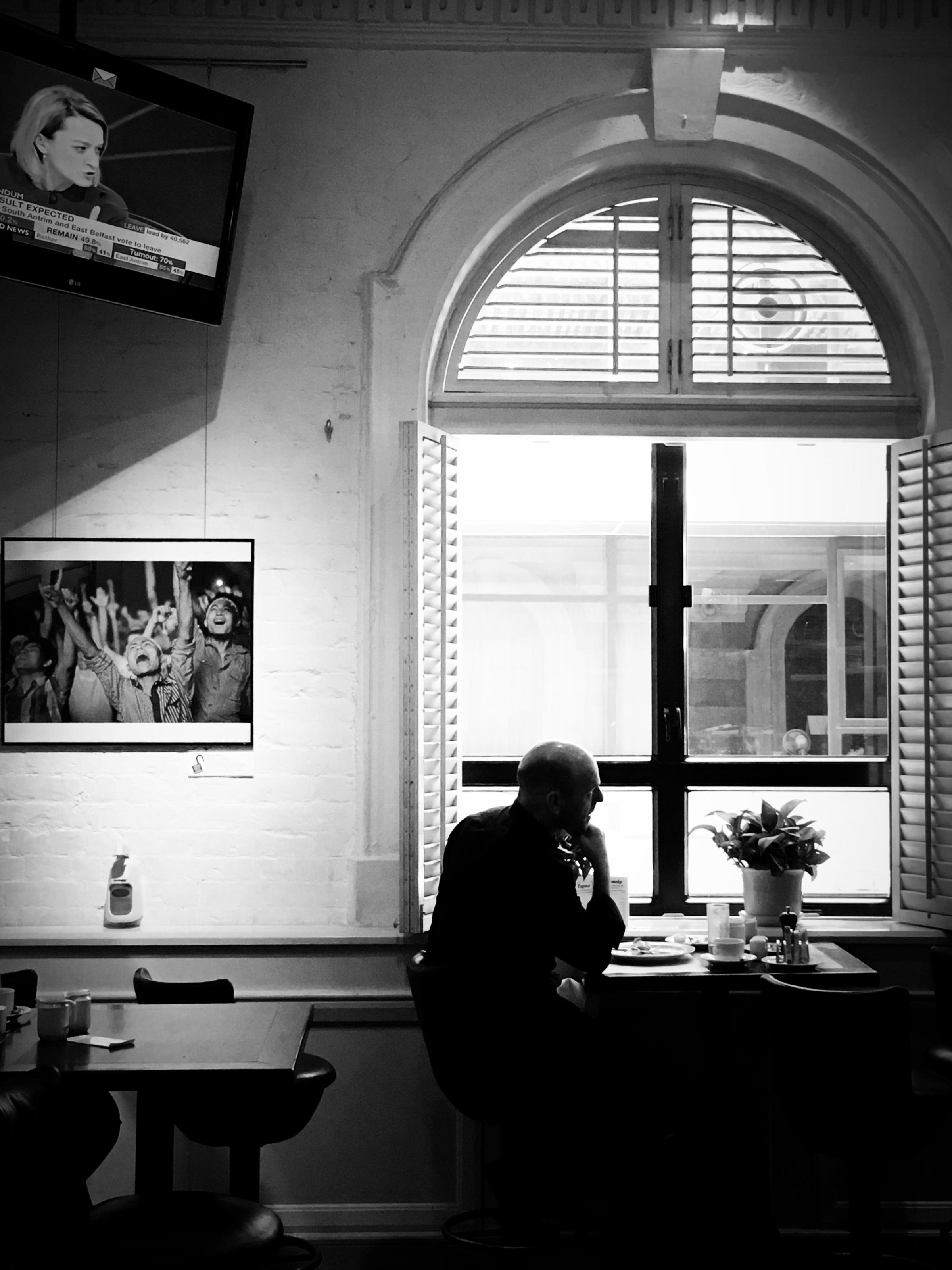The first results in Britain’s referendum on its E.U. membership began to trickle in just around midnight on Thursday. But midnight in London is early Friday morning in Hong Kong, which until only 18 years ago was British, so a scrum of older colonial sons took their breakfasts around the bar at the Foreign Correspondents’ Club, where a giant projection screen usually reserved for football — their football — was broadcasting the BBC.
“I voted to leave because I want to live in a democracy and at the moment I live in a crap dictatorship,” says 70-year-old Robert Clark, whose breakfast is a glass of Tsingtao beer. Clark lived in Hong Kong in the final two decades of colonial rule and now returns twice a year; he filed a postal vote before he left. “Angela Merkel’s achieved what the Kaiser in World War I and Hitler in World War II didn’t achieve — she’s conquered Europe.”
His remarks are surprising. You’d expect the British expats who live here — quaffers of Pouilly-Fuissé and owners of second homes in Lombardy — to be lovers of all things continental and many of them do appear to be. And yet politicized nostalgia is everywhere you look in Hong Kong. For instance: the Foreign Correspondents’ Club, housed in a building that dates from World War I, is tucked onto Lower Albert Road in the shadow of Victoria Peak, a block up from Queen’s Road, and a few steps from a set of working 19th century, gas-fired street lamps. It was only last year that local authorities apologetically announced that they would have to start painting over mailboxes that bore the insignia of King George V.

“The nostalgia thing is ultimately only a part of it,” Clark says, just as the BBC reported that Durham had gone overwhelmingly in favor of Brexit (58% to leave; 42% to stay). “But the majority of us feel we need to regain our sovereignty and make our own laws.”
And at 4:40 in the morning in London, the BBC reported they’d be getting that chance. More than 13 million people — 51.5% of the electorate, by the Economist’s tally — had voted to leave the European Union. It was just before noon in Hong Kong, and more than a smattering of enthusiastic applause broke out at the Foreign Correspondents’ Club’s bar, where waiters in starched black shirts were taking lunch orders.
“Cameron’s out of a job!” someone hooted.
Matthew Braddock, a 49-year-old British manufacturer who has lived in Hong Kong “for the better part of 20 years,” put down his Bloody Mary to join in the applause. His support for Brexit was economic — an unhappiness with the capital flowing from the U.K. into Europe — but he also seemed particularly happy that Labour politician Neil Kinnock, a “bloody Eurocrat,” would also be “out of a job.”
“I don’t think the E.U. will survive 18 months without us,” he said, a little gleefully. “But us — our balance of power in Europe and everywhere else is going to improve, no doubt about it. No more snouts in the E.U. trough.”
More Must-Reads from TIME
- Donald Trump Is TIME's 2024 Person of the Year
- Why We Chose Trump as Person of the Year
- Is Intermittent Fasting Good or Bad for You?
- The 100 Must-Read Books of 2024
- The 20 Best Christmas TV Episodes
- Column: If Optimism Feels Ridiculous Now, Try Hope
- The Future of Climate Action Is Trade Policy
- Merle Bombardieri Is Helping People Make the Baby Decision
Contact us at letters@time.com